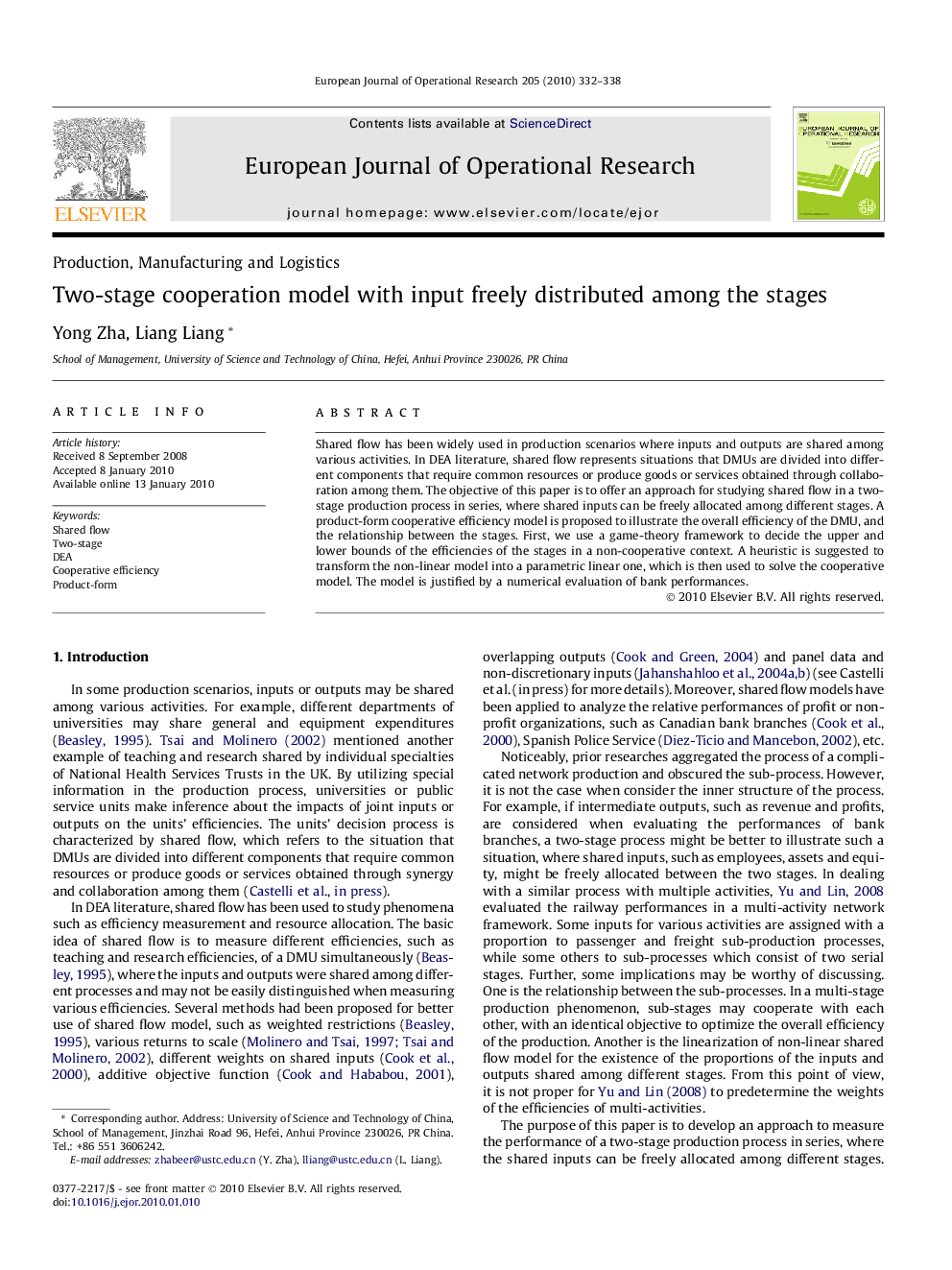| Article ID | Journal | Published Year | Pages | File Type |
|---|---|---|---|---|
| 480480 | European Journal of Operational Research | 2010 | 7 Pages |
Shared flow has been widely used in production scenarios where inputs and outputs are shared among various activities. In DEA literature, shared flow represents situations that DMUs are divided into different components that require common resources or produce goods or services obtained through collaboration among them. The objective of this paper is to offer an approach for studying shared flow in a two-stage production process in series, where shared inputs can be freely allocated among different stages. A product-form cooperative efficiency model is proposed to illustrate the overall efficiency of the DMU, and the relationship between the stages. First, we use a game-theory framework to decide the upper and lower bounds of the efficiencies of the stages in a non-cooperative context. A heuristic is suggested to transform the non-linear model into a parametric linear one, which is then used to solve the cooperative model. The model is justified by a numerical evaluation of bank performances.
